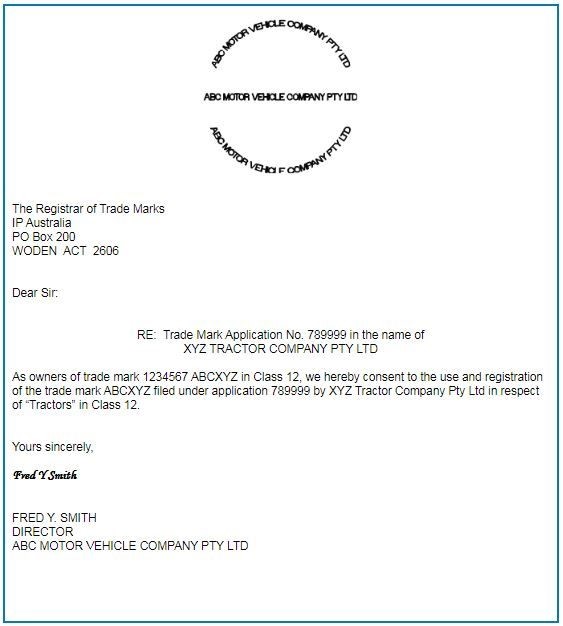Can a Letter of Consent Help You Escape from Refusal of Protection of Trademark According to the 2010 WIPO Survey in 58 Countries including Vietnam?
Email: vinh@bross.vn
Letter of Consent is one of four remedies for overcoming refusal of trademark protection
In general, according to the trademark laws of countries all around the world, a trademark (brand name) seeking for protection must not be deceptive, misleading the characteristics, functions, uses of goods and services, and shall not be confusingly similar to another’s trademark. In other words, a trademark applied for registration must meet two conditions: inherent distinctiveness, and do not conflict with the prior rights of others[1].
It may normally take about from 10 months to 2 years or longer depending on each country’s practice[2] since your trademark application is lodged to receive a notice of allowance of protection or a notice of refusal of protection[3]. Where receipt of the notice of refusal, almost reasons for refusal raised by the Trademark Office is that the trademark applied for registration is confusingly similar to pre-existing trademarks.
The practice has established that Letter of Consent or Consent Letter or Consent Agreement is generally considered as one of four way[4] helping applicant to overcome the refusal of protection on the ground of a likelihood of confusion with earlier trademarks.
Letter of Consent, which is in nature an agreement in written form with the features as same as a contract, is either in the form of a simple statement (Letter of Cnsent) given by the registrant (who holds an earlier registered trademark that is cited by the Trademark Office as a refusal ground against applied-for trademark) or in the form of a co-existence agreement signed by the applicant and registrant, whereby the registrant consents to the registration and use of the trademark in question.
A Snapshot of the 2010 WIPO Survey Rendered in 58 Countries on the Letter of Consent
In 2010, the WIPO's Standing Committee on Trademarks, Designs and Geographical Indications conducted and published a survey about the law and practice of accepting or refusing Letter of consent in 58 countries[5] including Vietnam, China, Germany, Japan, Singapore, Malaysia and the US.
The Trademark Authorities of these countries are required to answer 9 questions surrounding the acceptance or refusal of the junior trademark that is similar to the earlier trademark based on the Letter of Consent, namely:
-
Is it possible to overcome the following through the presentation of a Letter of consent? (i) An ex officio refusal of a trademark registration based on an earlier registered trademark? (ii) An opposition to a trademark registration based on an earlier registered trademark? (iii) A request for invalidation or cancellation of a trademark registration based on an earlier registered trademark?
-
Is a Letter of consent acceptable if it is filed by an applicant that is a legal person belonging to the same group of enterprises as the holder?
-
Is a Letter of consent regarding identical marks for identical goods or services acceptable?
-
If a third application is filed for a similar trademark as was registered on the basis of a Letter of consent, is the applicant required to file Letters of consent from all holders of earlier registrations?
-
Should a Letter of consent meet formal requirements such as: mandatory content or an Office form?
-
Could a letter of consent be admissible only for a specific period of time?
-
Is there any restriction to transfer a trademark which was granted on the basis of a Letter of consent?
-
Is it possible to withdraw a Letter of consent after a trademark was granted on that basis?
(a) Does withdrawal cause the registration to lapse?
-
Is the presentation of a copy of the Letter of consent required for the renewal of a trademark registration granted on that basis?
The three most important questions from the survey are (1), (3) and (5) showing that 68% questioned countries, including Vietnam and the US, accept the Consent Letter as a way to overcome the refusal of protection in all 3 procedures: (a) establishment of trademark right, (b) opposition, and (c) invalidation/cancellation of validity of registered trademarks. While some countries accept Letter of Consent in part but not refuse (because there is no regulation in their national law), i.e. their approval of Letter of Consent within the procedures (b) or (c) aforesaid such as China, Russia. Only a very few countries that do not totally accept Letter of Consent comprise Japan, Korea, Colombia, and the Philippines.
A form of simple Letter of Consent accepted by the Australian IPO as below.

Bross & Partners has experience in trademark opposition, counter-opposition and trademark cancellation due to non-use in Vietnam including those in negotiating and obtaining letter of consent. Should you have needs, please contact us at Email: vinh@bross.vn; Mobile: 0903 287 057; WeChat: Vinhbross2603; WhatsApp: +84903287057; Skype: vinh.bross; Zalo: +84903287057.
Bross & Partners, an intellectual property renowned law firm founded in 2008, regularly ranked as top tier by Managing Intellectual Property (MIP), World Trademark Review (WTR1000), Legal 500 Asia Pacific, AsiaLaw Profiles, Asia Leading Lawyers, Asia IP and Asian Legal Business (ALB). With many years of outstanding experience and distinctive expertise, Bross & Partners can help clients effectively protect or defend in complex intellectual property disputes in Vietnam and overseas.
[4] Four ways that can help you overcome refusal of protection for a trademark application include:
(a) Proving that the rejected mark is not similar to a cited mark (pre-existing mark); or
(b) Seeking to acquire the cited mark and record such assignment in one’s name; or
(c) Revoking the validity of the cited mark for the reason of non-use in commerce from the date of registration (typically 3 years).
(d) Negotiating to obtain a Letter of Consent from the cited mark owner.




